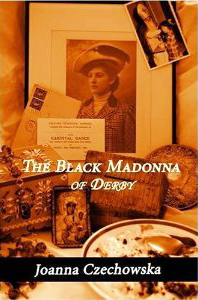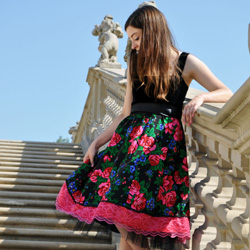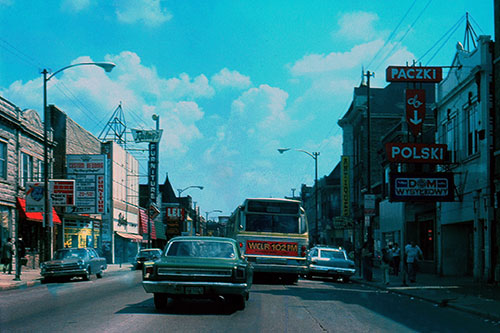 The Black Madonna of Derby
The Black Madonna of Derby
By Joanna Czechowska
Silkmill Press, 260 pages
ISBN: 0955884004
An interview with Joanna Czechowska in The Guardian sparked an instant interest in her book. Although her mother was English, Czechowska was raised in her father’s Polish community, complete with Saturday schools, scout groups and dances in the Polish Hall. Since her mother worked, Czechowska was raised by her adored and adoring Polish grandmother, who spoke several languages but none of them English. Consequently Czechowska’s first language was Polish. When she was five years old, her grandmother died, and from that moment, the little girl refused to speak Polish.
Years later, when the wave of Polish workers descended upon England, Czechowska, by then working for a magazine in London, started hearing Polish spoken on buses, in shops and on the streets, stirring long forgotten memories. At the same time, Czechowska started writing a novel and what better source than the close-knit, resilient, mysterious, colourful – if somewhat sad – community she was raised in. She took Polish lessons to supplement her childhood language and before long a book emerged, filled with a marvelous set of characters at once Polish – and not.
Czechowska’s characters are individuals, no stock “Polish” personality to be found. Still, it is clear the author understands the complicated relationship of new identity to old. In some there is the desire to totally assimilate illustrated in one case by a young man who assumes his wife’s English family name to be rid of his own — an extreme example but not much different from the many Poles who changed their names in a more conventional way. Others have an insecure need for approval, though Czechowska knows that their insecurity is not necessarily connected to their ethnicity and is no different from that of many native born who don’t quite “fit in.” And still another almost obsessed with her Polish heritage, embellishing it, imagining it to suit herself, blinded by it.
The Poland-obsessed sister, beautiful, graceful, intellectual Zosia, the grandmother’s favorite, visits 1960s Poland, a grim place but filled with beauty, mystery and romance – in her eyes. On a visit to Sukiennice in Krakow, she buys an image of the Black Madonna sincerely believing the original was painted by St. Luke on a piece of wood actually taken from the Holy Family’s home. Her Polish cousin scoffs at this, incredulous that she would believe this sort of thing.
Back in England, on the other hand, the other sister, chunky, awkward Wanda, rejected by the grandmother, joins swarms of young girls who venerate the Beatles with a religious fervor on par with anything one would find in a backward, superstitious and isolated village. They maintain vigils outside Paul McCartney’s house, and some try to get into the house to pinch a souvenir, their very own relic to be venerated with ecstatic passion.
Czechowska is at ease describing mainstream England as she is describing the little Polish corner within it, and the two together set the stage. But it’s her father’s Polish family that takes centre stage, perhaps because the drama there seems more poignant. The longing for home, the terror-filled memories, the loss of identity and status, living a life in translation, the grandmother’s return to Poland, the struggle and the privations, all insignificant compared to theneed to be “at home.” And then the surprising twists and the unexpected resolution. Just like life.
The Black Madonna of Derby is delightful, original work. Although written in English, it was translated by a cousin and first published in Polish. It was a big hit. Some people speculated its popularity was due to the fact that so many Poles were going off to England to work, experiencing separation from home and family, struggling in a new environment, working in a new language. I rather doubt that. There’s a big difference between being an exile, and being an immigrant by choice.
Besides, it seems much more likely that the book was popular simply because it was a good book.
CR



